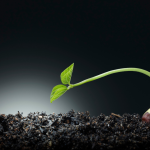Plant Physiology Webinar: How respiratory energy can drive *everything*
Plant Physiology Webinar: How Respiratory Energy Can Drive *Everything*
Celebrating the April 2023 Focus Issue on Respiration
Recorded Thursday April 6, 2023
About this webinar
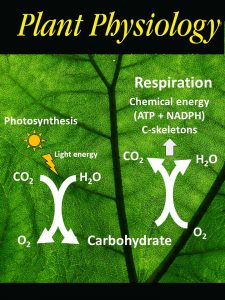 Respiration is central to plant metabolism and consumes roughly half the carbon fixed by photosynthesis. As the climate warms, rates of respiration will increase, which has implications for plant performance and global carbon cycles. However, despite the importance of the topic, plant respiration is a relatively understudied area. The April 2023 Focus Issue of Plant Physiology highlights research on plant respiration, spanning work ranging from physiological ecology through mitochondrial biochemistry to metabolic modeling and synthetic biology.
Respiration is central to plant metabolism and consumes roughly half the carbon fixed by photosynthesis. As the climate warms, rates of respiration will increase, which has implications for plant performance and global carbon cycles. However, despite the importance of the topic, plant respiration is a relatively understudied area. The April 2023 Focus Issue of Plant Physiology highlights research on plant respiration, spanning work ranging from physiological ecology through mitochondrial biochemistry to metabolic modeling and synthetic biology.
We organized a webinar to explore plant respiration from the standpoint of energy budgeting and the application of “Fermi calculations” as a way to get rough but robust estimates of the potential success and scalability of respiration-related plant engineering projects.
This webinar features speakers Ulschan Bathe, Kristen Van Gelder, and Bryan Leong, who shared their findings from their Update in the Focus Issue. They were joined by Keira Havens (Pivot Bio), Wolfgang Busch (Salk Institute), and Charlie Messina (University of Florida, formerly with Pioneer Hi-Bred International), who shared their expertise in synthetic biology and agronomy. The webinar was hosted by Plant Physiology Features Editor Mary Williams and moderated by Steven Burgess.
SPEAKERS
Ulschan Bathe
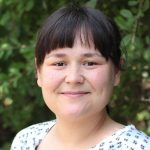 Ulschan Bathe is a postdoc in the Andrew Hanson lab at the University of Florida. She started her academic career working on plant diterpene metabolism and its reconstruction in yeast. She was granted a Walter Benjamin fellowship by the German Research Association to explore the power of continuous directed evolution in the Hanson group. Using continuous directed evolution, she prolongs the working life of short-lived plant enzymes with the goal of lowering protein turnover rates in planta, thereby cutting respiration rates; energy saved thereby can be channeled into production of new biomass.
Ulschan Bathe is a postdoc in the Andrew Hanson lab at the University of Florida. She started her academic career working on plant diterpene metabolism and its reconstruction in yeast. She was granted a Walter Benjamin fellowship by the German Research Association to explore the power of continuous directed evolution in the Hanson group. Using continuous directed evolution, she prolongs the working life of short-lived plant enzymes with the goal of lowering protein turnover rates in planta, thereby cutting respiration rates; energy saved thereby can be channeled into production of new biomass.
Wolfgang Busch
 Wolfgang Busch is Professor and holder of the Hess Chair in Plant Science at the Salk Institute for Biological Studies in La Jolla, California. He furthermore is an Adjunct Professor at the Department of Cell and Developmental Biology at University of California, San Diego. Dr. Busch studies genes, genetic networks, and molecular processes that determine root growth and its responses to the environment. He is also the Executive Director of the Salk Harnessing Plants Initiative that develops plant varieties with enhanced carbon sequestration capabilities for removing CO2 from the atmosphere, thereby counteracting climate change.
Wolfgang Busch is Professor and holder of the Hess Chair in Plant Science at the Salk Institute for Biological Studies in La Jolla, California. He furthermore is an Adjunct Professor at the Department of Cell and Developmental Biology at University of California, San Diego. Dr. Busch studies genes, genetic networks, and molecular processes that determine root growth and its responses to the environment. He is also the Executive Director of the Salk Harnessing Plants Initiative that develops plant varieties with enhanced carbon sequestration capabilities for removing CO2 from the atmosphere, thereby counteracting climate change.
Keira Havens
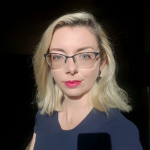 Keira Havens is the Sustainability Project Manager at Pivot Bio. She received her BS at the Illinois Institute of Technology and her MS from Colorado State University. She has been deeply involved in synthetic biology as a scientist, an entrepreneur, a communicator, and a thought leader. She is working with the Pivot Bio team to tell the story of the future of fertilizer, beginning with the innate capability of the soil microbiome to provide nitrogen and other key nutrients that crops need.
Keira Havens is the Sustainability Project Manager at Pivot Bio. She received her BS at the Illinois Institute of Technology and her MS from Colorado State University. She has been deeply involved in synthetic biology as a scientist, an entrepreneur, a communicator, and a thought leader. She is working with the Pivot Bio team to tell the story of the future of fertilizer, beginning with the innate capability of the soil microbiome to provide nitrogen and other key nutrients that crops need.
Bryan Leong
 Bryan completed his PhD at Michigan State University in Rob Last’s lab studying acylsugar biosynthesis. He moved to the University of Florida to Andrew Hanson’s lab, where he is using continuous directed evolution systems to engineer and improve plant enzymes. He is broadly interested in how plant metabolism can be used to improve lives and better serve our purposes.
Bryan completed his PhD at Michigan State University in Rob Last’s lab studying acylsugar biosynthesis. He moved to the University of Florida to Andrew Hanson’s lab, where he is using continuous directed evolution systems to engineer and improve plant enzymes. He is broadly interested in how plant metabolism can be used to improve lives and better serve our purposes.
Charlie Messina
 Charlie Messina is a professor at the University of Florida. Originally from Argentina, he completed his PhD at the University of Florida, and then spent 17 years in the private sector, focusing on crop models and breeding, before returning to UF in 2022, where he works with breeders to improve the nutritional value of Florida produce and to reimagine agriculture as a solution to climate change. Dr. Messina also specializes in developing AI for plant breeding.
Charlie Messina is a professor at the University of Florida. Originally from Argentina, he completed his PhD at the University of Florida, and then spent 17 years in the private sector, focusing on crop models and breeding, before returning to UF in 2022, where he works with breeders to improve the nutritional value of Florida produce and to reimagine agriculture as a solution to climate change. Dr. Messina also specializes in developing AI for plant breeding.
Kristen Van Gelder
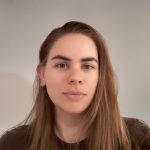 Kristen Van Gelder completed their PhD in molecular and cellular biology from the University of Guelph, Canada in the laboratory of Dr. Tariq Akhtar. They studied plant specialized metabolism, with an emphasis on isoprenoid biosynthesis in Solanum lycopersicum. Additional research into phenolic metabolism in Cannabis led to an interest in synthetic biology, specifically harnessing microbial enzymes for plant metabolic pathways. As a postdoc in the laboratory of Dr. Andrew Hanson at the University of Florida, Kristen is interested in continuous directed evolution of enzymes.
Kristen Van Gelder completed their PhD in molecular and cellular biology from the University of Guelph, Canada in the laboratory of Dr. Tariq Akhtar. They studied plant specialized metabolism, with an emphasis on isoprenoid biosynthesis in Solanum lycopersicum. Additional research into phenolic metabolism in Cannabis led to an interest in synthetic biology, specifically harnessing microbial enzymes for plant metabolic pathways. As a postdoc in the laboratory of Dr. Andrew Hanson at the University of Florida, Kristen is interested in continuous directed evolution of enzymes.
Steven Burgess
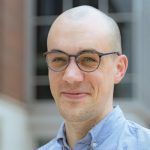 Steven Burgess is an Assistant Professor in the Plant Biology Department at the University of Illinois Urbana-Champaign. His work focuses on mechanisms and evolution of photosynthetic carbon fixation using molecular, physiological, and synthetic biology approaches. He has a BSc in biochemistry from the University of Edinburgh and a PhD in molecular biology from Imperial College London, where he investigated algal bio hydrogen production. He did postdocs at the University of Cambridge and was a Carl R Woese Institute for Genomic Biology fellow at University of Illinois, before joining the faculty in 2022.
Steven Burgess is an Assistant Professor in the Plant Biology Department at the University of Illinois Urbana-Champaign. His work focuses on mechanisms and evolution of photosynthetic carbon fixation using molecular, physiological, and synthetic biology approaches. He has a BSc in biochemistry from the University of Edinburgh and a PhD in molecular biology from Imperial College London, where he investigated algal bio hydrogen production. He did postdocs at the University of Cambridge and was a Carl R Woese Institute for Genomic Biology fellow at University of Illinois, before joining the faculty in 2022.


